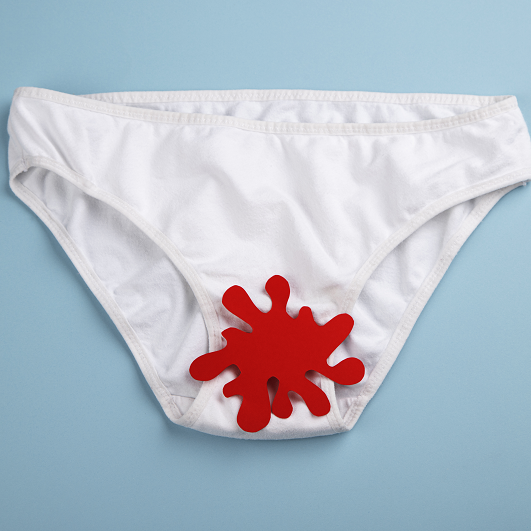How to Get Rid of Period Cramps

March 30, 2023
It’s that time of the month again. You’re bloated, cranky and on top of all that – period cramps.
But, if misery loves company, some studies have shown over 80% of women experience cramping during their period.
Diana R Vitale, M.D., obstetrics and gynecology specialist at Hackensack University Medical Center discusses several ways to alleviate period cramps and make your menstrual cycle more manageable:
- Over-the-counter pain medicine: Over-the-counter pain medication such as ibuprofen can help relieve discomfort from period pain. Dr. Vitale advises to take not more than 800 mg every eight hours as needed for pain relief. “It is also advisable to take the medicine after eating food to avoid any potential gastrointestinal issues,” says Dr. Vitale.
- Hot water bottle: Applying heat to the lower abdomen can help relax the muscles and reduce period cramps. You can also use heat pads, warm towels or take a warm shower – all these methods can provide relief from period cramps.
- Exercise: Doing light exercises such as walking or yoga can help improve blood flow and reduce cramps. Physical activity releases endorphins, which are natural painkillers and mood boosters. “It is important to listen to your body and not push yourself too hard, especially if you are experiencing severe cramps” advises Dr. Vitale.
- Avoid inflammatory foods: Avoiding salt, sugar, chocolate, fried food and coffee can help prevent water retention and reduce bloating, which can cause period cramps. It is important to eat a balanced diet rich in fruits, vegetables, and whole grain, which helps reduce inflammation and regulate hormone levels.
- Supplements: Taking supplements such as magnesium daily can help reduce period cramps. “Magnesium is generally a good supplement to take for women on a daily basis," says Dr. Vitale.
- Acupuncture: There is some research that suggests that acupuncture can help alleviate discomfort due to period cramps by reducing inflammation and increasing blood flow.
- Hydration: Staying hydrated is generally important for overall health. It is recommended to drink eight to 10 cups of water daily. Avoid sugary drinks and caffeine as they can cause dehydration. You can include herbal tea and coconut water as different forms of hydration drinks.
When should you see a doctor?
Although period cramps are common and can be controlled at home, there are times that you need to seek medical attention.
You should make an appointment to see a doctor if you:
- Miss school or work frequently due to pain
- Have irregular vaginal bleeding which is not a part of regular period
- Experience pain during sex
- Have abnormal discharge from vagina
- Have similar pain outside your monthly periods
- Experience heavy vaginal bleeding during periods
- Have a family history of endometriosis
"Your period doesn't have to stop you in your tracks – if you're experiencing cramping that doesn't go away with these home treatments, your OB/GYN can help come up with a treatment plan to get you moving again," says Dr. Vitale.
Next Steps & Resources:
- Meet our source: Diana R Vitale, M.D.
- To make an appointment with Dr. Vitale or a doctor near you, call 800-822-8905 or visit our website.
- Learn more about women’s health services
The material provided through HealthU is intended to be used as general information only and should not replace the advice of your physician. Always consult your physician for individual care.






